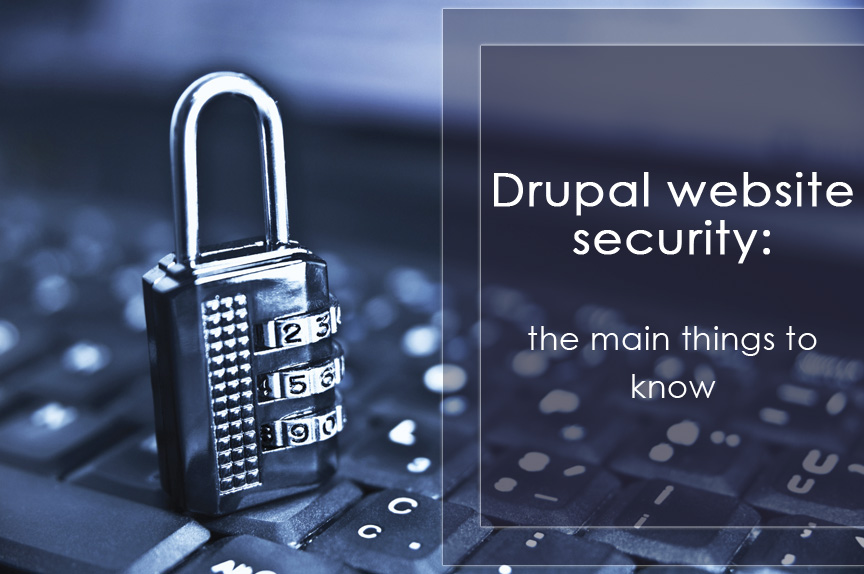After the blog posts about Drupal’s benefits for university websites and ecommerce websites, we would like to discuss Drupal security. Let’s start!
Security has always been named among the benefits of Drupal as a website-building platform. But this sounds more convincing when you discover that websites like those for White House, French Government, New Zealand Government, British Council, and the Embassy of the UAE in Washington are built with Drupal.
Their owners trust Drupal and feel safe. There must be good reasons for that! Now, let’s go into the details and check out some prominent features that make Drupal secure.
If you are just thinking of getting a website or already have one built with Drupal, you are welcome to read about these benefits, as well as tips about how to use them in the proper way.
Drupal website security
A security team ready to help: always rely on them
Drupal has its own security team, which includes dozens of experts from across the globe. They constantly analyze Drupal core and modules, view security reports, respond to security issues, cooperate with the module maintainers, prepare and release fixes. Anyone can contact them to report some vulnerabilities or get assistance.
Continuous core and module updates: be sure to follow
Drupal core and contributed modules are continually updated to provide the high level of functionality and security for your website. Be sure to run the recommended core and module updates for your Drupal website. Old modules you don’t need anymore should be removed.
In terms of security for custom code, be sure it is written well and in accordance with Drupal coding standards. Custom module development, as well as their regular review and updates, should be entrusted to experienced developers.
In addition, if your site is running on Drupal 6 or an earlier version, consider a website upgrade to Drupal 7 or Drupal 8 which are now the only two versions supported by the community and, consequently, getting regular security updates.
Please note that InternetDevels website development company can build excellent custom modules for any of your website’s needs, and our support service Drudesk will take care of all update issues, including any complicated website upgrades.
A convenient user role and permission system: use it wisely
Drupal offers flexible options for granting roles and permissions to your website’s users or groups of users. Be sure you are granting the appropriate access rights only to the users that really need them. Pay a special attention to the roles that are allowed to run PHP code on your site. It’s a really safe idea to remove PHP input filter from your website altogether. By the way, in Drupal 8, it is no longer even available.
Data encryption: have extra protection
In Drupal, passwords are encrypted with various parameters (length, expiration, complexity etc.). Also, a strong database encryption can be configured, with a lot of options to protect specific information. Use it for the enhanced security of your website.
Limited login attempts: prevent intrusion
Drupal helps prevent intrusions by limiting the number of login attempts from the same IP address for a certain period of time. You can also keep track of all these attempts via the administrative interface.
Form API: clean up the data before entering the database
The mission of Form API is to scrub and validate the data before it is entered into the database. It tests the data entered by users for matching the specific formats and parameters.
If you would like to have a deeper insight into Drupal security aspects, you could check out a blog post by our developer with lots of useful technical details.
And if your idea is to get an awesome Drupal website built for you with high security and other Drupal’s benefits, it’s a great moment to contact InternetDevels right now.
Be safe! ;)

